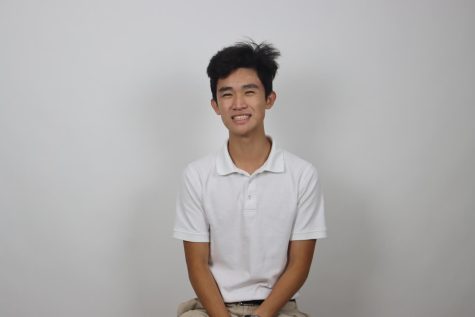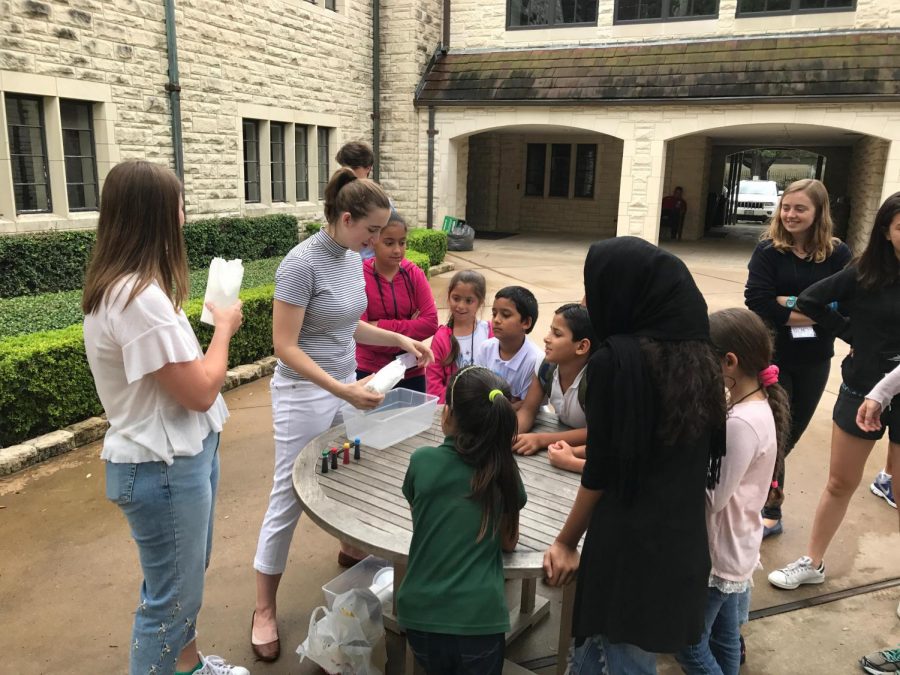Upper School students tutor refugee children, host Summer Express on Zoom
Before COVID, student tutors and refugee tutees met in person during the summer.
In 2006, sophomores Laynie Johnson (‘08) and Johnny Leader (‘08) sought to bridge the gap in academic achievement between wealthy and low-income children. They created a 10-day academic summer camp to supplement the K-5 public school education at Will Jones Elementary in the Third Ward. Over the next fifteen years, the program evolved into an annual two-week opportunity for kids with refugee immigrant status and St. John’s students to learn together.
Due to COVID, this June, Summer Express was held over Zoom for the second year. Tutors worked with a total of 28 kids, many of whom spoke English as a second language.
“It can be difficult to tutor kids who don’t speak English,” senior project leader Catherine Lu said, “but the more we get to know them, the easier it becomes. And once we form that connection and truly engage with the students, that’s irreplaceable.”
Before the program began, the Summer Express leaders created videos, orientation plans and a comprehensive curriculum to ensure that everything ran smoothly.
“It was really the student leaders who made this happen,” faculty sponsor Amy Malin said. “Their hard work and persistence were far stronger than any pandemic.”
Refugee students were paired with SJS student tutors in Zoom breakout rooms. The tutors went over concepts in math, science and English throughout three main tutoring sessions each day.
“Teaching might look easy to some people from the outside,” Community Service Director Marci Bahr said. “As an experienced educator, I can say with certainty that it is not.”
The students were brought back to the main Zoom room for virtual field trips and extracurriculars, such as video tours of the Houston Museum of Natural Science, the Houston Zoo and NASA. At the end of the day, students shared their favorite experiences.
“We can see on the kids’ faces that this program has a positive impact,” Lu said. “The kids were so excited that we never had any issues having them contribute to discussions.”
According to project leader Matthew Perez, the kids’ energy created a positive educational environment.
“Everyone—teachers, tutors, and students—would all come together and have a laugh,” Perez said. “Learning is best when it’s fun.”
Since the camp was hosted virtually, the Summer Express staff shortened each class session to avoid “Zoom fatigue.” Student leaders helped combat this issue through stretch breaks and yoga sessions.
One problem with virtual programming is that economically challenged students often don’t have devices which can access the internet. Fortunately, organizations working with Summer Express were able to provide computers to families who didn’t own one.
Faculty sponsor Alice Fogler (‘10) hopes that Summer Express will be held in person next year.
“Projects like these, where students learn how to be role models, are the type of tutoring opportunities that made me fall in love with teaching,” Fogler said.

James Li ('23) joined The Review in 2020 as a sophomore. He enjoys biking around Houston and is known for having too many window stickers on his car.














